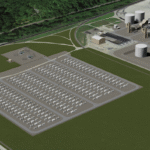Energy Efficiency 101: Understanding the Basics
As the world grapples with the challenges of climate change, energy efficiency has become a critical aspect of our daily lives. With the increasing concern for the environment, governments, businesses, and individuals are looking for ways to reduce their energy consumption and carbon footprint. In this article, we will explore the basics of energy efficiency, its importance, and simple ways to incorporate it into your daily life.
The Importance of Energy Efficiency
Energy efficiency is the practice of using energy in a way that minimizes waste and maximizes output. It involves using appliances, lighting, and heating and cooling systems that are designed to use energy efficiently. Energy efficiency is important for several reasons:
Reducing Energy Consumption
One of the most significant benefits of energy efficiency is reducing energy consumption. When you use energy-efficient appliances and systems, you use less energy to achieve the same outcome. This means you will save money on your energy bills and reduce your reliance on non-renewable energy sources.
Lowering Carbon Emissions
Energy efficiency also plays a critical role in reducing carbon emissions. When you use energy-efficient appliances and systems, you reduce the amount of energy needed to generate electricity, which in turn reduces the amount of carbon emissions released into the atmosphere.
Saving Money
Energy efficiency can also save you money. When you use energy-efficient appliances and systems, you will reduce your energy consumption, which means you will pay less on your energy bills. Additionally, energy-efficient appliances and systems can also increase your home’s value and make it more attractive to potential buyers.
Simple Ways to Improve Energy Efficiency
Improving energy efficiency is easier than you think. Here are some simple ways to get started:
Switch to Energy-Efficient Lighting
One of the simplest ways to improve energy efficiency is to switch to energy-efficient lighting. LED bulbs, for example, use significantly less energy than traditional incandescent bulbs and can last up to 25 times longer.
Upgrade to Energy-Efficient Appliances
Another way to improve energy efficiency is to upgrade to energy-efficient appliances. Look for appliances with the ENERGY STAR label, which indicates that they meet energy efficiency standards set by the U.S. Environmental Protection Agency.
Seal Air Leaks
Sealing air leaks is another simple way to improve energy efficiency. Air leaks can allow heated or cooled air to escape, which can increase your energy consumption. Use caulk or weatherstripping to seal gaps around windows, doors, and ducts.
Conduct an Energy Audit
Conducting an energy audit is a great way to identify areas in your home or business where energy efficiency can be improved. An energy audit will help you identify areas where energy is being wasted and provide recommendations for improvement.
Conclusion
In conclusion, energy efficiency is a critical aspect of our daily lives. By understanding the basics of energy efficiency, we can reduce our energy consumption, lower our carbon footprint, and save money. Simple changes such as switching to energy-efficient lighting, upgrading to energy-efficient appliances, sealing air leaks, and conducting an energy audit can make a big difference. By incorporating energy efficiency into our daily lives, we can create a more sustainable future for generations to come.
FAQs
Q: What is the ENERGY STAR label?
A: The ENERGY STAR label is a program run by the U.S. Environmental Protection Agency that helps consumers identify energy-efficient products and homes. Products and homes that carry the ENERGY STAR label have met energy efficiency standards set by the EPA.
Q: How do I know if an appliance is energy-efficient?
A: Look for the ENERGY STAR label or check the appliance’s energy consumption rating. A lower energy consumption rating means the appliance is more energy-efficient.
Q: Can I DIY an energy audit?
A: Yes, you can conduct a DIY energy audit by walking through your home or business and looking for areas where energy is being wasted. You can also use online energy audit tools and resources to help you identify areas for improvement.
Q: How long does it take to pay back an energy-efficient upgrade?
A: The payback period for an energy-efficient upgrade can vary depending on the type of upgrade and your energy consumption habits. However, many energy-efficient upgrades can pay back within a few years, saving you money on your energy bills.
Q: Can I get incentives for energy-efficient upgrades?
A: Yes, many government agencies, utilities, and companies offer incentives for energy-efficient upgrades. These incentives can include rebates, tax credits, and low-interest loans. Be sure to research the incentives available in your area.


.png?w=150&resize=150,150&ssl=1)
.png?w=150&resize=150,150&ssl=1)



.png?w=150&resize=150,150&ssl=1)